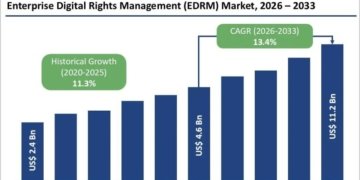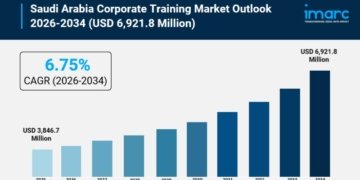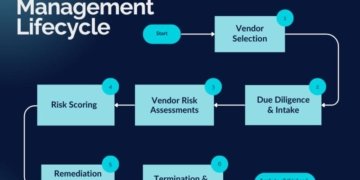According to a new report published by Market Research Future (MRFR), building management systems (BMS) Market is projected to grow from USD 26.76 Billion in 2025 to USD 94.15 Billion by 2034, exhibiting a compound annual growth rate (CAGR) of 15.20% during the forecast period 2025 – 2034.
System type, component, deployment type, communication protocol, and end-use industry are the factors used to categorize the Building Management System (BMS) market. System types include facility management systems, security and access control, lighting control, HVAC control, energy management systems, and fire safety systems. Hardware, software, and services are the three categories of components; software solutions are expanding quickly developments in cloud computing and IoT integration.
Deployment types include on-premise and cloud-based solutions, with cloud platforms gaining traction for their scalability and remote accessibility. Communication protocols such as BACnet, Modbus, and KNX facilitate interoperability among diverse building systems. End-use industries span residential, commercial, and industrial sectors, with commercial buildings leading in adoption due to stringent energy efficiency regulations and operational cost considerations.
Click Here to Get Sample Premium Report – https://www.marketresearchfuture.com/sample_request/21567
Market Drivers
The growing need for energy-efficient buildings, sustainability-related regulations, and developments in IoT and AI technologies are the main factors driving the BMS industry. Building owners are being forced to use BMS solutions in order to comply with the strict energy efficiency criteria and green building certifications that governments around the world are enforcing.
The integration of IoT devices enables real-time monitoring and control of building systems, enhancing operational efficiency and reducing energy consumption. Additionally, AI-powered analytics provide predictive maintenance capabilities, minimizing downtime and extending the lifespan of building assets. These technological advancements not only optimize building performance but also contribute to significant cost savings, further driving market growth.
Market Opportunities
There are numerous potential in the BMS market, especially in developing nations where infrastructure and urbanization are growing quickly. Opportunities for BMS solutions to combine different building systems into a unified platform are created by the growing trend towards smart cities and the adoption of smart building technology. Furthermore, the need for sophisticated HVAC and air quality monitoring systems has increased due to the growing emphasis on occupant comfort and health, particularly in the post-pandemic period.
The residential sector also offers untapped potential, with homeowners seeking intelligent solutions for energy management, security, and automation. Companies that can innovate and offer scalable, user-friendly BMS solutions tailored to these diverse needs are well-positioned to capitalize on these opportunities.
Market Challenges
Notwithstanding the encouraging growth potential, the BMS industry is confronted with obstacles like high upfront investment prices, intricate system integration, and cybersecurity issues. Small and medium-sized businesses may find it difficult to implement BMS solutions since they frequently need large capital expenditures.
Moreover, integrating various legacy systems with modern BMS platforms can be technically challenging and resource-intensive. As buildings become more connected, the risk of cyber threats increases, necessitating robust security measures to protect sensitive data and ensure system integrity. Addressing these challenges requires continuous innovation, strategic partnerships, and a focus on developing cost-effective and secure BMS solutions.
Market Key Players
There is fierce competition in the BMS business, with a few major manufacturers dominating both market share and innovation. Among the well-known businesses are ABB, Siemens, Johnson Controls, Schneider Electric, and Honeywell International. To improve their product offerings and increase their global footprint, these companies make significant investments in research and development. These businesses are able to incorporate cutting-edge technologies like AI, machine learning, and IoT into their BMS solutions through strategic activities like mergers and acquisitions, partnerships, and collaborations with technology providers. They are leaders in the changing BMS landscape because of their broad portfolios, which serve a range of market sectors from residential to large-scale commercial and industrial applications.
Buy this Premium Research Report | Immediate Delivery Available at – https://www.marketresearchfuture.com/checkout?currency=one_user-USD&report_id=21567
Regional Analysis
Due to strict energy efficiency laws and a strong focus on sustainable building standards, Europe commands a sizeable portion of the regional BMS industry. Leading nations like Germany, the UK, and France are putting policies into place that encourage the use of BMS solutions. The United States leads the North American market in terms of size because of its sophisticated infrastructure and early adoption of smart building technologies.
The Asia-Pacific region is witnessing rapid growth, particularly in countries like China, India, and Japan, where urbanization and industrialization are accelerating the demand for BMS solutions. The Middle East and Africa, along with Latin America, are emerging markets with increasing investments in infrastructure development and smart city initiatives, presenting new opportunities for BMS adoption.
Industry Updates
The continuous trend towards digitization and the integration of cutting-edge technologies is shown by recent advances in the BMS sector. Businesses are concentrating on creating cloud-based systems with features for data analytics, scalability, and remote monitoring. Predictive maintenance, energy management, and improved decision-making are made possible by the combination of AI and machine learning algorithms.
Additionally, the rise of 5G technology is expected to further enhance the connectivity and responsiveness of BMS solutions, facilitating real-time data exchange and control. These innovations are not only improving the efficiency and effectiveness of building operations but also contributing to the creation of intelligent, sustainable environments.
Browse In-depth Market Research Report –https://www.marketresearchfuture.com/reports/building-management-system-market-21567
Future Outlook
The future of the BMS market appears promising, with continued growth anticipated across all regions and sectors. The increasing adoption of smart technologies, coupled with supportive government policies and a growing emphasis on sustainability, will drive the demand for advanced BMS solutions. The integration of renewable energy sources, such as solar and wind, into building systems presents new opportunities for BMS to manage and optimize energy usage effectively.
Furthermore, the focus on occupant well-being and comfort will lead to the development of more personalized and adaptive building environments. As the market evolves, companies that can offer innovative, secure, and cost-effective BMS solutions will be well-positioned to lead in this dynamic industry.
Explore Our Latest Trending Reports:
Data Center Power Market – https://www.marketresearchfuture.com/reports/data-center-power-market-5876
Incident And Emergency Management Market – https://www.marketresearchfuture.com/reports/incident-emergency-management-market-3248
Open Source Services Market – https://www.marketresearchfuture.com/reports/open-source-services-market-11799
Business Software Services Market – https://www.marketresearchfuture.com/reports/business-software-services-market-12119
GPON Technology Market – https://www.marketresearchfuture.com/reports/gpon-technology-market-12483
5G security Market – https://www.marketresearchfuture.com/reports/5g-security-market-10452
Data Masking Market – https://www.marketresearchfuture.com/reports/data-masking-market-5485
About Market Research Future:
At Market Research Future (MRFR), we enable our customers to unravel the complexity of various industries through our Cooked Research Report (CRR), Half-Cooked Research Reports (HCRR), Raw Research Reports (3R), Continuous-Feed Research (CFR), and Market Research & Consulting Services.
MRFR team have supreme objective to provide the optimum quality market research and intelligence services to our clients. Our market research studies by products, services, technologies, applications, end users, and market players for global, regional, and country level market segments, enable our clients to see more, know more, and do more, which help to answer all their most important questions.
Also, we are launching “Wantstats” the premier statistics portal for market data in comprehensive charts and stats format, providing forecasts, regional and segment analysis. Stay informed and make data-driven decisions with Wantstats.
Contact Us:
Market Research Future (Part of Wantstats Research and Media Private Limited)
99 Hudson Street, 5Th Floor
New York, NY 10013
United States of America
+1 628 258 0071 (US)
+44 2035 002 764 (UK)
Email: sales@marketresearchfuture.com
Website: https://www.marketresearchfuture.com
This release was published on openPR.



















